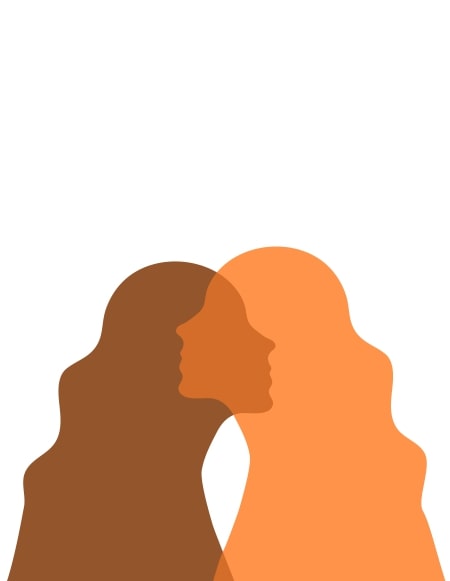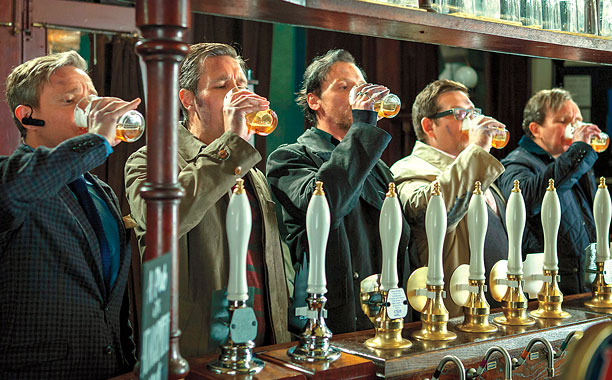
The term is not really about white women as a category vis-à-vis non-white women or others, rather it’s a question of how we in society value different lives and why we value these lives differently.
Should we ignore the unequal media treatment of human lives?
By Matthew Fraser, Editor in Chief
Ever since the disappearance of Gabby Petito was reported, there has been an ongoing discussion on “missing white woman syndrome.” The term itself was coined in 2004 by Gwen Ifill to describe the media’s coverage discrepancy between younger, generally affluent white women and women of colour. The term itself is used as a critique when it is applied to the wider categories of less affluent white people and other marginalized people—consider the LGBTQ community—who the media also often fail to illuminate.
The question for many people when it comes to the term “missing white women syndrome” is whether or not the words are needlessly divisive. At times the counterargument gruesomely mimics the ‘All Lives Matter’ rhetoric and counter-protest: i.e. not used to solve the problem but rather as a method to silence the uncomfortable criticisms being made. It is as if when faced with the idea that some groups are excluded from media highlights and concerns a section of the population would rather turn their heads away and scream division. But the term is not really about white women as a category vis-à-vis non-white women or others, rather it’s a question of how we in society value different lives and why we value these lives differently.
As I was thinking about the disappearance of Petito and as I read about the syndrome, I was struck by the name Laci Peterson. It was a name I had not heard since my childhood yet it was burned into some obscure portion of my brain. I remembered the dateline episodes and the coverage. I remembered the sombre yet frantic and sensationalized nature of the case all these years later. But most importantly, I remember how they described Peterson; always positively, using words like “promising” and “blessed” or “smiling” to communicate her life and the loss to the world. Even now I can’t quite tell if she was described as “angelic” (though I certainly don’t doubt that someone said it) or if that was what my brain had reduced the collective adjectives of the case to.
When I contemplate the total of the words used to describe Peterson and Petito, all too often the end result is that they are painted as victims robbed of the world that they deserved. Their families are described as ceaselessly suffering the unfairness of a world that takes the brightest lights so harshly. Though I’m certainly not arguing that there is no value to their lives, I am arguing that we are not called to value other lives equally. It’s clear to me that the media wants me, you and anyone watching to value the lives of a few white women, handpicked by fate and placed before us highly; yet, it is not clear to me that other lives are so valued by the media.
In fact, recent reporting by Mercury News covered a Bay Area News castor named Frank Sommerville who was suspended indefinitely for asking to highlight the phenomena known as “missing white women syndrome.” As reported, Sommerville’s proposal was rejected by news director Amber Eikel and led to a potentially heated debate with the rest of the staff. Certainly, this seems like a clear case of the media picking who we should and should not care about. Yet, in the weeks after Sommerville’s suspension, any number of mainstream outlets have moved to cover both Petito’s case and the historic imbalance of coverage. But apparently, for Eikel this was unacceptable.
This seems to be a question of who can rightfully be described as a victim versus who is considered guilty of their own demise. Even white women on the wrong side of suspicion are forgotten. In the case of Tiffany Whitton, the media’s opinion seemed clear: she was a drug addict caught stealing who ran away from judgement and vanished. As far as they were concerned, she was as guilty of her end as whatever unfortunate thing befell her, simply because it would be hard for them to write “promising angel” in their coverage. But Whitton is still a human being, and her family are also victims suffering the unfairness of the world; why should her life be valued differently? Why should her disappearance be tossed aside? Should we as a society sit so idly while different lives are put on different rungs to be cared for or ignored?
In an Esquire interview with Whitton’s mother Lisa Daniels, she reveals that directors for TV show host Nancy Grace were completely uninterested in her daughter’s story simply because of her past. Given that Nancy Grace herself argued to Larry King that she felt no guilt for wrongly accusing Richard Ricci of kidnap by saying: “I still say to this day, he was the most logical suspect police had at the time,” its not that surprising that she would not feel much sympathy to Whitton or any other missing person with a less than perfect history.
Here in Canada, we can look at the Highway of Tears and the apathy of the RCMP and other police forces in finding these missing women. According to RCMP standards, only 18 women have been deemed missing on the Highway of Tears, while First Nations groups have put the numbers at over 50 women taken. The issue has been so serious that it spawned a day of awareness in Red Dress Day, held annually on May 5. But even that is overshadowed by the response to missing white women.
For many missing white women, their images and names have been immortalized in laws or public actions. The Amber Alert is named after Amber Hagerman who was murdered in 1996. Her family’s story so thoroughly captured the imaginations and hearts of Americans that it spawned the now ubiquitous alert system for missing children. In contrast, an almost unknowable number of young BIPOC women and girls have gone missing with nary a peep and certainly no wall-to-wall coverage. Laci Connor’s law was implemented following the death of Laci Peterson and her unborn child, while other laws including Jessica’s Law (named after Jessica Lunsford) have been passed and thoroughly incorporated into our legal system while only recently has the plight of missing Indigenous women along the Highway of Tears garnered coverage and governmental action.
I think it’s time we ask ourselves, how equal is our world really when some people’s children are promised front-page status in life and disappearance while other children are confined to single columns deep in the paper? How close to justice are we when the RCMP sight 18 women missing while families and loved ones believe that nearly four times that number have been taken? How just is our world when the media can pan some for seeming to lack a sufficient level of innocence? Have we internalized a racial hierarchy that maintains a real worth division when it comes to human lives?
Maybe our ongoing cultural awakening will expose people to these more subtle forms of inequality. Maybe this will force a change in media offices around the world and it can help all of us view each other’s lives as equally valid. Until then, it seems like families far and wide will continue to suffer these horrid injustices.



